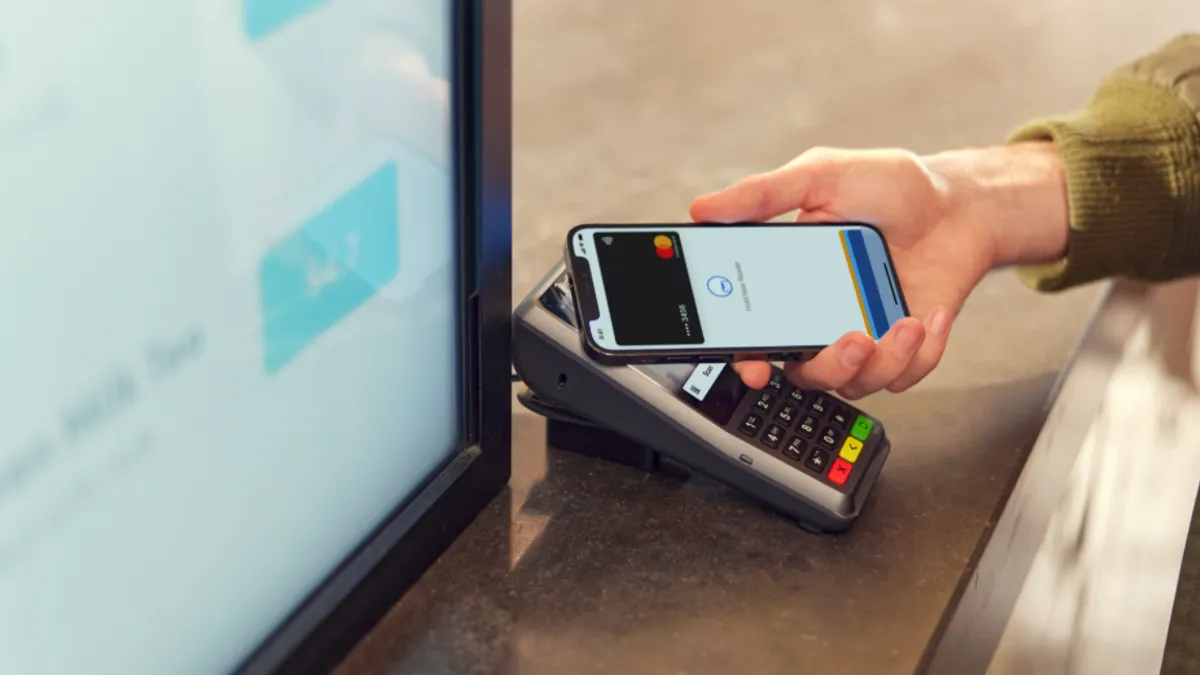Update: September 20, 2021: The buying spree for the payments industry continued last week with two more deals that demonstrate the industry is continuing to buy up rivals and startups to drive growth.
Fresh off of raising $300 million in new venture capital, the payments software company SpotOn said in a press release that it would acquire Appetize, which provides digital food, beverage and other commerce services for entertainment venues, sports arenas, zoos, colleges and other venues. The company didn't disclose the financial details of the acquisition, but said the recent fundraising gives SpotOn a valuation of $3.15 billion. Leading the investment was the mega California technology venture firm Andreessen Horowitz, but other notable investors were Wellington Management and Coatue Management.
The company expects the acquisition and new capital to fuel its drive deeper into delivering its digital and mobile commerce services to the middle market. “This investment enables SpotOn to significantly increase its total addressable market, with an end-to-end platform for restaurants and retail business of all types and sizes,” Andreessen Horowitz General Partner David George said in the release.
In a separate transaction, payments technology services provider FortisPay, which sells commerce and software services to businesses and developers, said in a press release that it would purchase OmniFund, which provides a range of services including credit-card processing, recurring and mobile payments services, and a virtual terminal tool, focusing on finance and health care. It also declined to provide financial details of the acquisition.
--------------------------
The payments industry is poised for a record-breaking year in acquisitions as fintech startups and COVID-19 drive business change for large legacy players.
Merger and acquisition research firm Dealogic recorded 125 acquisitions through early September, before a recent spate of acquisitions over the past week, including acquisitions announced by card giant Mastercard, payments processor Global Payments and digital behemoth PayPal. That puts the industry on track to easily surpass the 133 acquisitions recorded for 2020.
“Activity this year has significantly jumped,” said Zach Spellman, a project manager for The Strawhecker Group, a payments industry consulting firm that tracks acquisitions. He echoed the outlook for a record-breaking year. “I think Covid has had a large impact.”
While the number of acquisitions is likely to be a record, the annual value of acquisitions is looking less likely, with just $48.9 billion in deals logged so far, compared to the prior record in 2019 of $136.2 billion. That year, several dueling legacy payment processors, including FIS, Fiserv and Global Payments, closed multi-billion-dollar transactions.
Now, the impact of the deadly pandemic, which arrived in March 2020, has led consumers to shopping more online and prompted companies to reach for digital payment alternatives. The effect has been to supercharge a move toward electronic payments that was underway at a slower pace over the past 20 years.
As the trend has accelerated, billions of dollars in venture capital has flowed over the past 18 months into fintech startups eager to capitalize on disrupting traditional banking and payment processes.
As a result, industry incumbents are buying up fledgling competitors to protect their turf and some startups gathering investment dollars and strength are making their own acquisitions.
While scale-building acquisitions by larger merchant service providers of smaller independent sales organizations have been happening for years and continued this year — including the spree by Payroc Worldaccess — an increasing number of companies are forming their acquisition strategy around buying new technologies and products, Spellman said.
Some of those strategies were spurred by the COVID-19 e-commerce surge, including a rush to snap up companies involved in the worldwide buy now-pay later craze, Spellman said.
Square jumped on that trend in a big way with its $29 billion purchase of Melbourne-based Afterpay in August, and PayPal followed suit with its $2.7 billion acquisition of Tokyo-based Paidy this month.
Similarly, PayPal agreed to buy Happy Returns in May to handle a rise in online returns. That deal came a month after BNPL player Affirm announced a purchase of Returnly, another company focused on handling returns.
Online fraud issue
In addition, the increase in shopping fraudsters online has given rise to increased demand for businesses that can detect and help thwart e-commerce crime. For companies that can’t or don’t want to build those tools, acquisitions are another option.
In April, Mastercard said it would buy identity verification company Ekata for $850 million in a bid to better secure transactions and prevent fraud.
In May, the privately-held payments fintech darling Stripe said it would purchase online fraud prevention company Bouncer. Stripe, which gained a $95-billion valuation this year after additional funding, also agreed to purchase Taxjar in April to add a sales tax tool to its quiver.
Visa, which was blocked by the Justice Department in its bid to buy U.S. upstart rival Plaid in January, jumped back into the fray with purchases this year of two European fintechs, paying $2.1 billion for Swedish open-banking innovator Tink and nearly $1 billion for British cross-border payments company Currencycloud.
Payments business particularly suited to deals
Low-interest rate capital is fueling acquisitions across all industries, but the payments arena is particularly fertile ground for deal-making, said Baird Equity Research Analyst David Koning. That’s because large legacy players are seeking to absorb the new technologies that upstart peers are introducing, and that customers are demanding.
“The larger (financial technology) companies want the growth, and to be viewed as cutting edge,” Koning said in an email.
Companies like Mastercard, Visa, Fiserv and FIS “serve so many banks across the world that they can take a small company and immediately sell across to thousands of banks,” he added. “And payments carries a lot of risks so the little companies that are acquired get put on the systems of the big players, which have very good security, etc.”
The intense merger and acquisition activity looks set to continue, given the record dollar amounts that venture capitalists are continuing to dump on new entrants. And incumbent players continue to be on the hunt for acquisitions.
Global Payments, for one, assured its investors last week that acquisitions will continue full-throttle with some $28 billion to spend over the next several years. That announcement came after its $500 million purchase of payments software company MineralTree.
Whether all the announced deals actually close this year, as expected, remains to be seen. Regardless, Spellman said he believes the industry even has a shot this year at breaking the dollar-value record too.



















